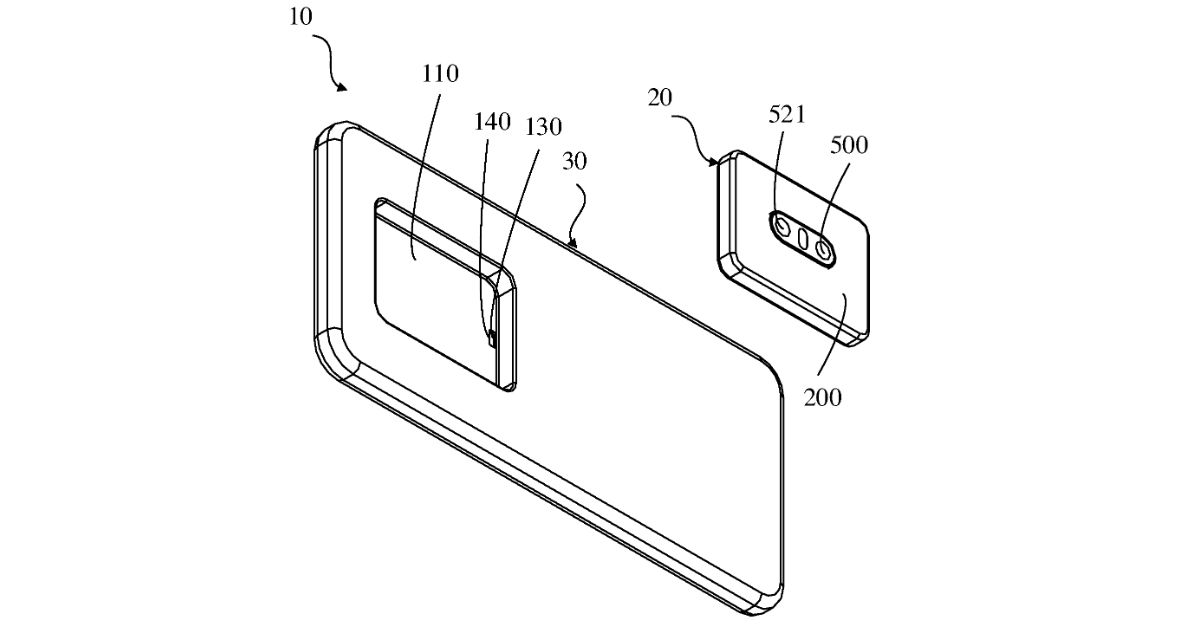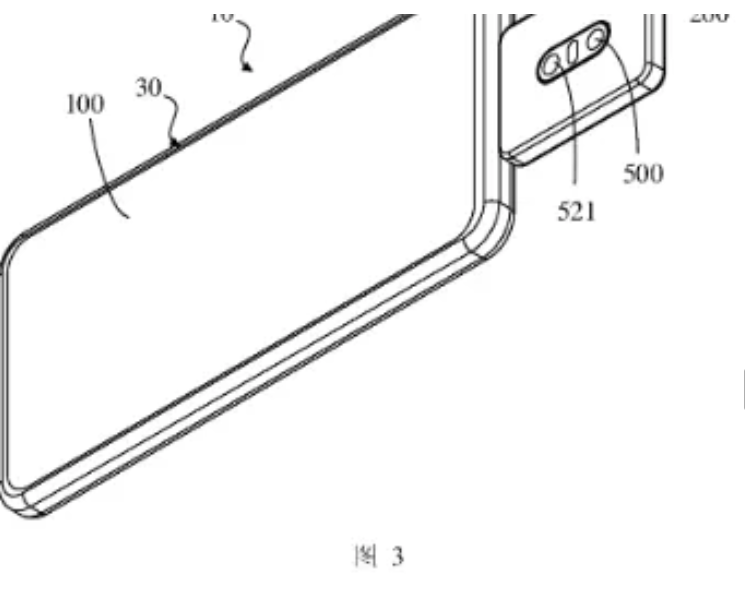Forget iPhone 13 — this game-changing phone will let you upgrade the camera
A new patent from Oppo reveals a rear camera module that can be removed

Ever since the iPhone X arrived in 2017, people have been griping about the camera notch, and it's still very much alive in the iPhone 12. And while other manufacturers have found innovative ways to attempt to kill it — from pop-up mechanisms to pin-hole cameras in the screen — nothing has quite felt like the perfect solution.
Now Oppo, itself no stranger to killing the notch, has another idea. A new patent uncovered by 91mobiles shows a modular design where the rear camera can be removed for selfies. It also means that you would be able to upgrade the phone's camera over time.
- The best camera phones right now
- iPhone 13 release date, price, specs and leaks
- Just in: Apple Watch 7 reveals killer upgrade we've been waiting for
When attached, the camera functions as normal, letting you take photos by pointing the rear of the camera at the subject. When you want a selfie, though, you can pop out the camera module and snap away, simply pointing it at the subject.

Not only does the patent mention NFC, Wi-Fi and Bluetooth for connectivity, but it’s also shown to have a USB Type-C connector, allowing it to be attached to the phone’s charging port for a more conventional selfie experience.
All of this requires a built-in lithium-ion battery so the camera will function when away from it home. We would imagine that would work like the Samsung Galaxy Note 20’s S Pen – something that tops up its charge when docked.
Modular skepticism

On paper it’s an idea with plenty of merits. Not only does this concept ditch the notch in a more practical way than past solutions (mechanical pop-up mechanisms have always added weight and raised reliability questions), but rear cameras tend to be better specced than their front facing counterparts.
That means you should theoretically get a better class of selfie from a phone like this. It also means that you could potentially upgrade your phone with a better camera module some way down the line.
Sign up to get the BEST of Tom's Guide direct to your inbox.
Get instant access to breaking news, the hottest reviews, great deals and helpful tips.
But despite this, the history of modular phones isn’t a particularly happy one. Take the LG G5, for example. That handset allowed users to physically clip G5 “friends” to the device, improving the functionality via add-ons – including a neat camera enhancement.
Only a handful of these friends were ever made, and the experiment was abandoned by the time the LG G6 rolled around.
More successful in terms of longevity and user friendliness, if not commercial success, was Motorola’s Moto Mods. These magnetically clipped to the back of Moto Z phones, adding a party speaker, better camera, game grip and more. Crucially, these add-ons worked between generations, meaning your extra investment was theoretically worthwhile if you stuck with Motorola, but we haven’t seen a handset supporting them since last year’s Moto Z4, so it too is likely dead.
What about under-display cameras?
Oppo’s idea is intriguing. But there are other ways of killing the notch that are much simpler. This includes under-display cameras that disappear when not in use.
For example, the ZTE Axon 20 5G has already been announced, and it's set to launch December 21. The 6.9-inch Android phone likely won't be available in the U.S, but it's expected to come to the U.K., EU, Japan, and other regions.
The Samsung Galaxy S21 was rumored to get a under-display camera, but since then the leaks have pointed to the same-old punch hole design.
Still, under-display cameras seem like a foregone conclusion as opposed to true innovation. And even if Oppo can't pull this modular concept off in a phone, it would be exciting to see at least one company try.
Next from Tom's Guide
- Best phone battery life: The longest lasting phones on earth
- The Galaxy S21 is coming next month - here's what we know
Freelance contributor Alan has been writing about tech for over a decade, covering phones, drones and everything in between. Previously Deputy Editor of tech site Alphr, his words are found all over the web and in the occasional magazine too. When not weighing up the pros and cons of the latest smartwatch, you'll probably find him tackling his ever-growing games backlog. Or, more likely, playing Spelunky for the millionth time.

